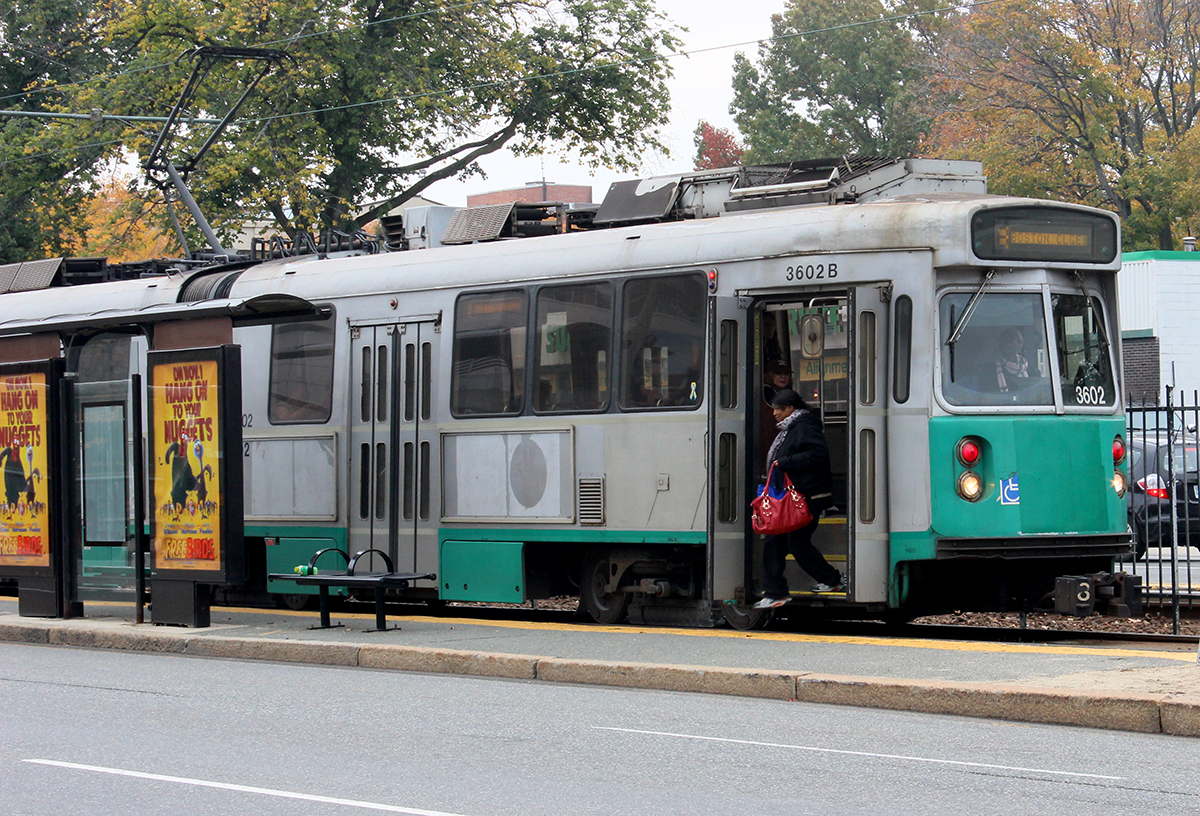The MBTA’s Struggling Warehouse Will Be Privatized

PHOTO BY OLGA KHVAN
It’ll be faster, cheaper, and more efficient, T officials say. And there won’t be any more waiting around more than two days for widgets. By privatizing its warehouse operations, they say, big changes are coming to the way the agency orders, locates, and transports spare parts for its aging fleet of trains and buses.
The T’s fiscal and management control board on Monday voted in favor a plan to hand over its parts-finding-and-transporting needs to a private company, Mancon Inc., for $28.4 million for a five-year contract. According to a presentation at the meeting, the move will save $25.4 million in operational costs and $38.8 million in capital costs, the State House News Service reports.
Officials say Mancon aims to reduce the amount of time it takes to locate and deliver a spare part from a current average of 68 hours to 10 hours. Mancon will also seek to make its record-keeping more efficient: T records on inventory are accurate about 61 percent of the time, and Mancon plans to get that figure up to above 90 percent. They will also staff the warehouse 24 hours a day, seven days a week (warehouse employees currently work eight-hour days).
Warehouse workers will be able to keep their jobs at the Everett warehouse for 20 months, then be eligible to transfer to other jobs within the MBTA, union leaders say.
This is the latest shift from union employees to a private company to come since the Legislature passed a three-year waiver of the Pacheco Law, which slowed down efforts to privatize government agencies by requiring that they be approved by the state auditor. So the Gov. Charlie Baker administration has been looking for opportunities to save money and to, as T leaders have argued, focus more energy and attention on getting people from A to B than on services they could pay someone else to worry about.
“Let’s be clear, the T is in the business of moving people, not parts,” says Brian Shortsleeve, the T’s acting general manager, according to the News Service, adding that the new contract is “a win-win-win for the T, our riders and the taxpayers.”
But the Carmen’s Union, which represents the workers, has opposed privatization efforts and opposes this move as well, arguing that management issues and other failings are to blame for the system’s troubles, not union laborers.
“Look, we don’t want to see any jobs outsourced at the MBTA. We oppose all privatization at the MBTA. We think that it’s still better to have it done with public employees,” Carmen’s Union President James O’Brien tells the News Service, adding, “I think that if there was some investment made in the warehouses and if it was done 24/7 we could probably compete with these people.”
The T last year privatized the operations of its so-called “money room” which counts and transports T fare cash. Brinks, the home security firm, now has that contract. Union workers who drive the T’s trains and buses will be spared losing their jobs to privatization for the next four years, though, according to the terms of a contract finalized in December.


